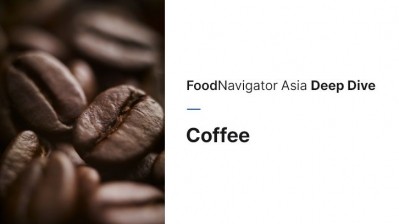Hot Right Now: ASEAN-EU potential trade war, Oceania caffeine concerns, palm oil sustainability and more feature in our round-up

A region infuriated: Confidence in EU trade plummets in ASEAN as palm oil sector formally unites
ASEAN consumer confidence in regional trade relations with the European Union have plummeted on the back of the latter’s recently-passed deforestation law and its impacts on various food commodities, as major palm oil producing countries in the region move to formally protest on the world stage.
The EU parliament approved its long-debated and highly-controversial deforestation regulation in September last year despite widespread protests from countries producing several food commodities in regions from Asia to South America.
They claimed the move was a political ploy and experts warned that this was highly likely to lead to further price hikes amidst inflationary pressures.
Caffeine concerns: Oceania consumers’ inadequate understanding of beverage contents a risk
New data from Food Standards Australia New Zealand (FSANZ) has revealed lacking understanding in local consumers regarding caffeine content in daily foods and drinks and the relevant side effects, posing a risk of overconsumption.
Pursuant to FSANZ’s proposal to review permissions for caffeine in general foods and sports foods as well as risk assessments for sensitive sub-populations in late 2022, the agency has conducted a systematic review covering 65 studies across 2010 to 2022 to examine consumer behaviour and understanding of caffeinated foods in the local food system, particularly the risks related to overconsumption.
According to the review, consumers are not always aware that a product contains caffeine especially when this is not made clear on the label, and many consumers continue to consume more of such products even when experiencing caffeine-related side effects.
What is palm oil sustainability? Forget premiumisation and complex certifications say experts
The age-old ideas that palm oil sustainability must involve complex certification processes and premium price points needs to be scrapped in order to truly achieve sustainable goals throughout the entire value chain, according to industry experts
For decades the concept of sustainability in the sector has been linked to expensive certification processes as well as higher price points.
But for sustainable palm oil to truly make its mark in the industry, there is a need to remove the shackles imposed by these ‘outdated concepts’, according to a panel of experts that convened at the recent Roundtable on Sustainable Palm Oil (RSPO) annual roundtable and symposium.
Get a grip: New Singapore robotics innovation aims to overcome ‘risk averse’ food manufacturers
The team behind a new soft robotics invention from Singapore is hoping to help ‘risk averse’ food manufacturers get to grips with the potential of new technology.
The researchers from the Singapore University of Technology and Design (SUTD) saw an opportunity in the use of soft robotics to improve the efficiency of manufacturing and assembly operations – where the tasks of this nature tend to be repetitive.
“In our conversations with potential users, we found that food assembly was a potential big market. We met a few times with SATS that takes care of catering for Changi Airport and Singapore Airlines. The challenge is that you need to manipulate objects that have very different consistencies, depending on whether you have a Western menu, Chinese menu, Indian menu, you need to manipulate the vegetables, rice, noodles, schools, and some stew.
“These are things that you cannot automate easily with standard tools. That's why humans are still the best option. We started looking at that specific space. In my group, one of the ideas we decided to explore was multimodal grippers,” Prof. Pablo Valdivia y Alvarado, Principal Investigator and Team Lead of the project, told FoodNavigator-Asia.
Sustainability amid volatility: Nestle Malaysia pushes energy, packaging and plant-based progress despite economic uncertainty
Nestle Malaysia has vowed to continue its progress in environmental and business sustainability areas such as renewable energy, recyclable packaging and plant-based product innovation even amidst current global economic instability.
Nestle celebrated its 110th anniversary in Malaysia in 2022 as its global headquarters announced positive growth in the company’s overall organic sales and profits, as well as significant progress in its ESG initiatives.
“Nestle’s peak carbon [emissions status] has been behind us since the 2019-2020 period, but as of 2022 we are also below the 2018 starting levels greenhouse gas emissions, an important achievement,” Nestle CEO Mark Schneider said when presenting on the firm’s ESG progress.












